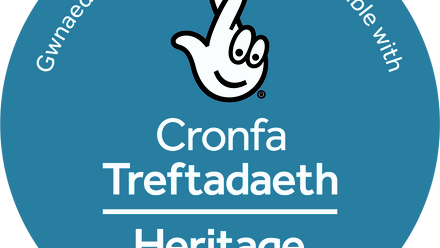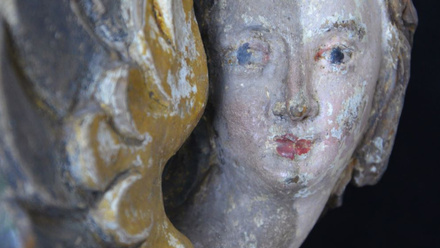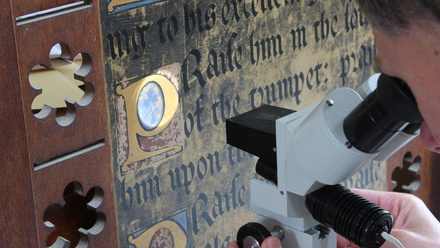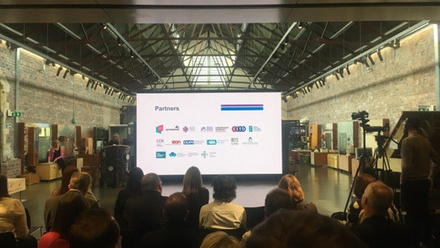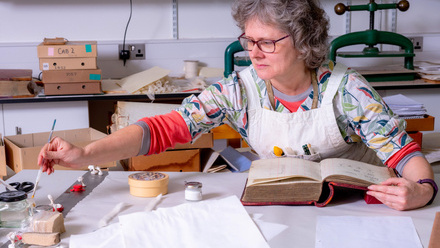The first discussions calling the professionalisation of the conservation sector, which ultimately led to the development of Icon Accreditation, took place in the 1980s.
These discussions really started in earnest in the early 1990s, leading to the development of of what was then termed, PACR - the Professional Accreditation of Conservator-Restorers, which was formally launched in 2000. Since then, 1200 professional conservator restorers have successfully navigated the Accreditation system.
Setting up the review
Icon Accreditation has been periodically reviewed over the last 23 years to ensure that it remains fit for purpose and meets the needs of conservators and importantly employers, clients and commissioners of conservation-restoration services.
In 2021, Icon’s Professional Standards and Development Committee commissioned the most significant review yet; a fundamental review of the actual process by which Icon accreditation is delivered to ensure that it remains fit for purpose, is accessible to all and is consistent in its approach, whilst also ensuring that the high standards of practice expected in the conservation profession are maintained (and developed).
We knew that to be successful we needed Icon members to lead this review to ensure that whatever was developed met the needs of professional conservators and the sector as a whole. A panel was formed, that included assessors, accreditation committee members, mentors and of course pathway members. The panel included Lara Artemis ACR, Beth Baker ACR, Mike Flannery ACR, Kate Frame, Kiera McKee, Sarah Peek ACR and Charlotte Tomlin. Alive Hynes also joined the group, who worked to provide an external perspective into the review process - her wealth of knowledge from working with the Architects Registration Board was invaluable in helping to ‘sense check; the system and ensure that we’re consistent with the approach taken in other professions.
Assessing the system and identifying areas for change
First and foremost, we know the system is a good one, it is robust, transparent and is recognised and valued by members, clients, commissioners and employers. However, could we do this better? Could we streamline the process making it easier to navigate whilst protecting the high standards of professional practice that are required in the conservation-restoration profession?
The first step of the panel was to consider how the system was currently delivering before, then looking into the areas for improvement. As part of the review stage, we sought the views of Icon members, including volunteers involved in the delivery of the assessment process and most importantly, of Pathway members – users of the system!
The application form was the most highly cited barrier putting individuals off applying for accreditation. The purpose of the form has always been to ensure that those embarking on the formal assessment process are likely to be successful – however it has become abundantly clear that the form itself has been putting many people off. It is long, rigid and the level of detail required is out of balance with its purpose – to effectively ‘triage’ candidates and ensure that everyone is suitably supported.
In addition, it was recognised that navigating the Accreditation process inevitably takes a lot of time – to complete the application form, to prepare for the assessment and of course the assessment day itself. However, people are understandably busy, must prioritise paid work and personal commitments – the process needed to adapt to work around individuals needs rather than the other way around.
Understandably cost was also raised regularly through the feedback process. The panel first sought to review the total actual cost of delivering the accreditation system. Taking into account all of the ‘actual costs’, the cost of delivering the process, i.e. fees for assessors, travel expenses and staff time was £1,100, whereas members were only being charged £700. If one were to then take into account the huge amount of time and support of volunteers involved in Accreditation, then the value of the service being delivered was closer £5,500.
Areas for change
The review panel took this information, and then looked at all aspects of the assessment process again to consider the initial question – how can we do this better? Key changes agreed through the review process include:
- Refocusing the application form, simplifying it focusing on understanding the nature of individuals professional practice and work.
- Introduction of an e-Portfolio system allowing candidates to prepare for accreditation in their own time, whilst also ensuring that there is a consistent evidence base clearly demonstrating an individuals professional practice.
- Ensuring that the volunteers time is used effectively, this includes refocusing the role of the Accreditation Committee, more effective support for mentors and looking at how trained assessors and specialist advisors input into the system.
- Paying the assessors! A huge amount of time and effort is required to prepare for, deliver and write up an assessment report – Icon will appoint a smaller pool of fully qualified assessors who will lead all assessments and undertake all the ‘leg work’. Specialist Advisors are then brought in to provide specific material knowledge into the assessment process and ensure that candidates are fairly assessed, but the level of input that they commit is more commensurate with the role of a volunteer.
- Reviewing the assessment policies that underpin the assessment process, in particular our ‘Fair Access’ policy, ensuring that all are able to access Icon Accreditation and perform to the best of their ability.

